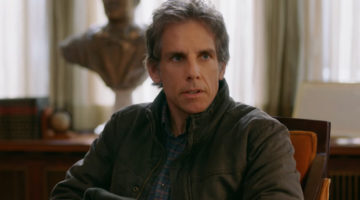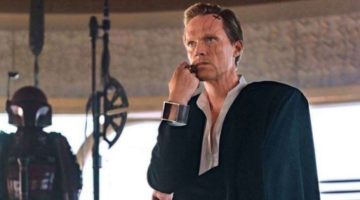Interview: Gabriela Cowperthwaite talks Blackfish
Having debuted to much acclaim at Hot Docs earlier this year, Blackfish makes its much-anticipated run in Toronto and will change the way you think about a decades-long institution.
Filmmaker Gabriela Cowperthwaite found her interest piqued when in the summer of 2010, a talented SeaWorld trainer was killed by a 12,000 pound killer whale by the name of Tilikum, and the stories that came out following were in conflict.
“I’m a mother of two twin boys, and we’re in Los Angeles, just two-and-a-half hours away – what happened that day isn’t square at all with my experiences at SeaWorld,” explains director Cowperthwaite via telephone ahead of the Toronto July 19 release for Blackfish. “It’s supposed to be this bucolic place where killer whales love each other and get along. I didn’t really suspect anything sinister, but only when the SeaWorld part line began changing, I was wondering whether there was something else going on.”
The film opens with the death of Dawn Brancheau and travels back in time to figure out just how exactly a regarded trainer was killed by an orca, with interviews from former trainers who know Dawn and Tilikum, and some especially disturbing footage of attacks that are more common that we think. Cowperthwaite’s film is riveting, powerful, and eye-opening, as we follow the capture of Tilikum, the abuse he endured, and a company that wanted to hold on to this impressive and fertile man regardless of his violent and rebellious nature.
“People are shocked by what they learn,” said Cowperthwaite. “I think they appreciate not being fed an agenda, but being served a whole story. It allowed them to sit in a film that didn’t feel like medicine or preachy. I wanted to talk to people like myself who had just taken their kids there.”
“We’ve the knowledge that intelligent, sentient animals shouldn’t be kept in captivity.”
One of the most powerful parts of a film that investigate Sea Parks, their control of information, and the distressing conditions in which the whales live, actually comes early on when we see whales first being captured in the 1970’s.
“I had seen that capture footage, and I remember thinking, and this is a terrible thing to admit, but I know this should be really bad to look at, but I just don’t understand what’s happening,” she explains. It’s just whales kind of in a corral, and it looks horrible, but what’s really going on here? For some reason it didn’t look like a horrific scene, but when I heard people describe what was happening, your heart jumps out of your chest, you can’t believe they’re splitting up families and the families are staying to watch. It’s so tragic.”
The heart-wrenching footage is enhanced by a narrative of a man who was there, who had captured and touched whales. Old-school investigative cold calling and a couple lengthy drives to the middle of the Pacific Northwest introduced Cowperthwaite and her crew to John Crowe, a grizzled, tattooed sailor who is reduced to tears reflecting on the past.
“You realize how his emotions from that day were just lying beneath the surface all the years later.”
As popular attitude and sentiments slowly begin to change about how people think of animals, Blackfish is undoubtedly an important film in this evolution. A human face is given to these plagued beasts, their plight is traumatic and powerful, and corruption and corporate greed is all too prevalent. Cowperthwaite approaches the film as someone who was a casual consumer of this form of entertainment, slowly unraveling layers of startling revelations and unforgettable discoveries.




